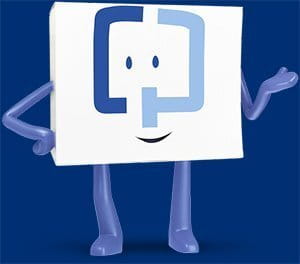Real Cologuard®
story: Elaine
Screened with Cologuard
“Take the time to take care of yourself. Make yourself a priority.”
For Elaine, this advice isn’t selfish. She takes it to heart – putting herself first enables her to be her best for those she loves. And at 65, that looks a lot like attending water aerobics classes, relaxing outside in sunny Florida and staying on top of preventive screenings, including regular screenings for colon cancer.
In the years between her screenings, Elaine learned the importance of early detection in a way she never expected – by supporting her partner as he fought colon cancer. He put screening off, Elaine shared, and needed surgery and chemotherapy by the time his cancer was found. Elaine was there to support him at every appointment, and it made her look at screening from a completely different lens.
“If he had put it off any longer, I don’t know if he’d be here,” she shared. “It’s very important to get screened, and I know that.”
So, when she was due to screen for colon cancer again in 2018, her question to her healthcare provider wasn’t why or when but how she would be getting screened. Since Elaine was at average risk, her healthcare provider recommended Cologuard® as an appropriate option.
Elaine was encouraged by having an easy-to-use option and a recommendation she trusted from her healthcare provider. After quickly returning her sample to the lab and receiving a negative result, Elaine could have simply crossed screening off the to-do list for a few years. Instead, she took on the task of sharing her story and the importance of screening with others. After all, screening on time would mean nothing to Elaine if she didn’t share it with others – people just like her partner and the approximately 60 million adults who are not up to date with screening.1, 2*
Having supported him during treatment, Elaine gets it – the nerves and anxiety some people might feel toward screening and why they might put it off. She has experienced it with her partner – how scary it can feel if more follow-up is needed. But the way Elaine sees it, that’s no excuse to fall behind. Quite the contrary – it’s all the more reason to take proactive steps toward taking care of yourself. Because when colon cancer is caught earlier, it’s more treatable.3†
That’s exactly what Elaine plans to do by screening again whenever she’s eligible – she’s looking forward to starting the conversation three years after her negative Cologuard result when the American Cancer Society recommends she screen again.4 And when she does, Elaine knows it’ll be for her partner, family and friends…and the peace of mind to enjoy every moment with them.
*Based on 2022 USA single year census estimates for ages 45-85 inclusive and the percentage of unscreened subjects. Does not account for variable screening rates across age ranges.
† Based on 5-year survival
References
1. United States Census Bureau. Annual Estimates of the Resident Population by Single Year of Age and Sex for the United States: April 1, 2020 to July 1, 2022 (NC-EST2022-AGESEX-RES). Accessed 10May2023. https://www.census.gov/data/tables/time-series/demo/popest/2020s-national-detail.html
2. ACS. Colorectal cancer facts and figures 2023-2025. Atlanta: American Cancer Society; 2023.
3. National Cancer Institute. Cancer stat facts: colorectal cancer. https://seer.cancer.gov/statfacts/html/colorect.html. Accessed January 2, 2024.
4. Wolf AMD, Fontham ETH, Church TR, et al. Colorectal cancer screening for average-risk adults: 2018 guidelines update from the American Cancer Society. CA Cancer J Clin. 2018;68(4):250-281.
Cologuard is intended to screen adults 45 years of age and older who are at average risk for colorectal cancer by detecting certain DNA markers and blood in the stool. Do not use if you have had adenomas, have inflammatory bowel disease and certain hereditary syndromes, or a personal or family history of colorectal cancer. Cologuard is not a replacement for colonoscopy in high risk patients. Cologuard performance in adults ages 45-49 is estimated based on a large clinical study of patients 50 and older. Cologuard performance in repeat testing has not been evaluated.
The Cologuard test result should be interpreted with caution. A positive test result does not confirm the presence of cancer. Patients with a positive test result should be referred for colonoscopy. A negative test result does not confirm the absence of cancer. Patients with a negative test result should discuss with their doctor when they need to be tested again. False positives and false negative results can occur. In a clinical study, 13% of people without cancer received a positive result (false positive) and 8% of people with cancer received a negative result (false negative). Rx only.

